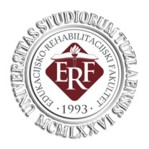THE ATTITUDES OF TEACHERS AND SPECIAL EDUCATORS TOWARDS THE USE OF COMPUTERS AND MODERN TECHNOLOGY IN TEACHING CHILDREN WITH DEVELOPMENTAL DISABILITIES
Keywords:
special educators, teachers, computers, attitudes, developmental disordersAbstract
The goal of education is to provide favorable conditions for creativity, cooperation, actualization, and flexibility in order to prepare students for active work and functioning in society. This is especially important for inclusive education as students with potential. It is necessary that teachers have a positive attitude towards their use of technology in the education process. Our disabilities need specific support that will ensure equality of opportunity and enable them to reach their full aim was to determine the attitudes of class and subject teachers and special educators towards the use of modern technology in working with students with developmental disabilities. We surveyed 248 teachers and special educators. Attitudes were examined using a modified Scale for Assessing Teachers' Attitudes towards Computers Questioner. The results indicate that special educators working with children with autism spectrum disorder (ASD) had higher scores on the dimensions of usefulness (t = 3.14, p <0.01) and immersion (t = 2.10, p <0.05). Subject-teachers who had experience with children with ASD had less interest (t = -2.14, p <0.05) and less confidence in the usefulness of computers (t = -2.54, p <0.05). In general, attitudes of all sample groups were positive, when it comes to computer use with children with disabilities. This research shows that there is interest among teachers to implement and integrate modern technology in educational system in the Republic of Serbia. Future research should focus on the impact on motivation and effects of computer use in different school subjects on children’s knowledge.
Downloads
Downloads
Published
How to Cite
Issue
Section
License

This work is licensed under a Creative Commons Attribution-NonCommercial-NoDerivatives 4.0 International License.







